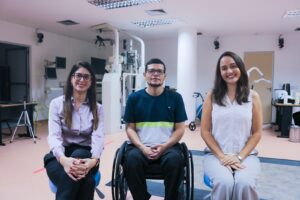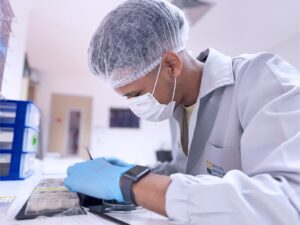Dysphagia, difficulty swallowing food or saliva, is a condition frequently observed in patients with Parkinson's, caused by weakening or incoordination of the muscles used in swallowing. Educa Parkinson this Wednesday (22) addressed the topic, providing guidance and answering questions from users of the Santos Dumont Institute (ISD).
According to the Institute's speech therapist preceptor, Ana Maria, complaints about choking and accumulation of saliva have increased in the care line. “Seventy percent of Parkinson’s patients have dysphagia. The prevalence is very high, so we need to be careful. Having the knowledge, we prevent and create strategies to avoid a more serious situation”, he emphasized.
Among the consequences of dysphagia is bronchoaspiration, which is when saliva or ingested food invades the airways, which can cause pneumonia or a more serious infection. Other complications are dehydration, malnutrition and difficulty in oral administration of medications.
Dysphagia can be congenital or acquired after neurological, mechanical or psychogenic impairment. In patients with Parkinson's, it can occur at any stage and worsens as the disease progresses. In addition to causing nutritional and hydration losses, the condition also hinders the individual's eating and social pleasure.
Patients and family members must be careful to prevent accidents, especially when eating. Frequent choking, coughing during meals and weight loss for no medical reason can be warning signs. It is also important to keep the patient hydrated and know the physical therapy maneuvers that can unblock the throat in the event of choking.
Educa Parkinson brings together Parkinson's care line patients on a monthly basis to discuss topics relevant to their treatment and living with the disease. This Wednesday's meeting was attended by students from the Escola Multicampi de Ciências Médicas do RN.
About ISD
The Santos Dumont Institute (ISD) is a Social Organization linked to the Ministry of Education (MEC) and includes the Edmond and Lily Safra International Neuroscience Institute and the Anita Garibaldi Center for Health Education and Research, both in Macaíba. ISD's mission is to promote education for life, forming citizens through integrated teaching, research and extension actions, in addition to contributing to a fairer and more humane transformation of Brazilian social reality.













